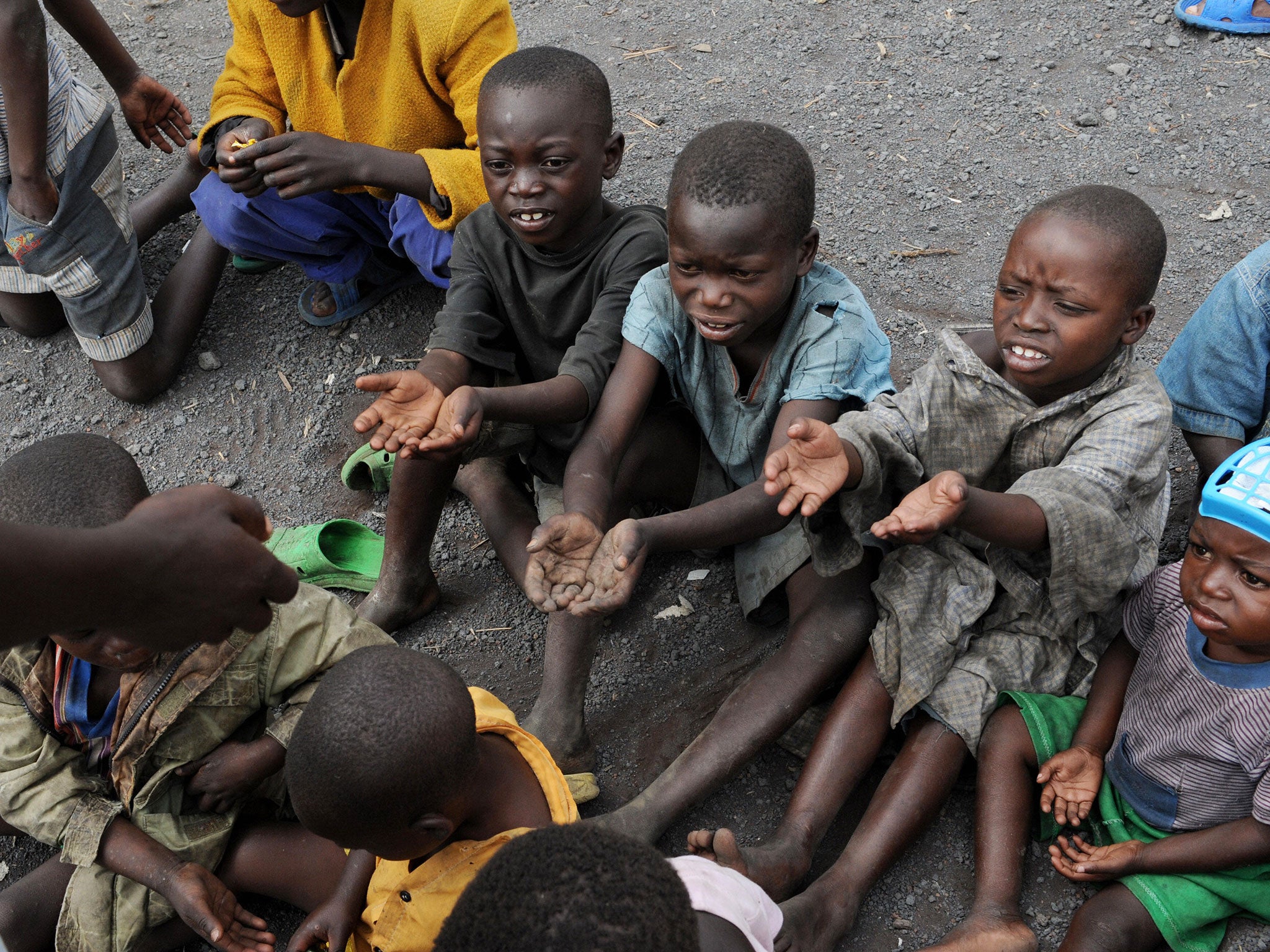The 20 countries where more than 1 in 4 people go hungry
UN's annual hunger report reveals the extent malnutrition around the global

Your support helps us to tell the story
From reproductive rights to climate change to Big Tech, The Independent is on the ground when the story is developing. Whether it's investigating the financials of Elon Musk's pro-Trump PAC or producing our latest documentary, 'The A Word', which shines a light on the American women fighting for reproductive rights, we know how important it is to parse out the facts from the messaging.
At such a critical moment in US history, we need reporters on the ground. Your donation allows us to keep sending journalists to speak to both sides of the story.
The Independent is trusted by Americans across the entire political spectrum. And unlike many other quality news outlets, we choose not to lock Americans out of our reporting and analysis with paywalls. We believe quality journalism should be available to everyone, paid for by those who can afford it.
Your support makes all the difference.More than 1 in 4 people go hungry in 20 countries around the world, a new report by the UN has revealed.
The annual hunger report by the body found that 795 million people globally suffer from malnutrition.
This represents an improvement from figures 25 years ago when a billion people were malnourished. Progress was most notable in Latin America, the Caribbean, East Asia, Southeast and Central Asia.
However, despite welcoming an overall decrease in cases of malnutrition, the report noted that many African countries continue to face food crises.
For twenty countries, malnutrition still exists to the extent that a quarter of their population goes hungry.
The country worst affected is Haiti, where more than half of its citizens suffer from malnutrition.
The region gained independence from French colonial control in the nineteenth century and suffered financially as it struggled to pay an ‘independence debt’ to France as compensation to former slave owners as recently as 1947.
Haiti still suffers from the impact of an earthquake in the country’s capital city Port-au-Prince in 2010 in which 160,000 lost their lives and 1.5 million Haitians were displaced.
The UN found that a variety of factors were hampering efforts in developing regions around the world, noting that in the worst affected countries: “extreme weather, natural disasters, political instability and civil strife have all impeded progress.”
The report, published by the Food and Agriculture Organization of the United Nations (FAO), the International Fund for Agricultural Development (IFAD) and the World Food Programme (WFP), did however highlight how progress was being made.
It found the majority of countries monitored – 72 out of 129 – had achieved the Millennium Development Goal of "halving the prevalence of undernourishment by 2015", while, a total of 29 countries had met the more ambitious goal from the World Food Summit in 1996, of "halving the absolute number of undernourished people by 2015".
FAO Director General José Graziano da Silva said: "The near-achievement of the MDG hunger targets shows us that we can indeed eliminate the scourge of hunger in our lifetime.
"We must be the Zero Hunger generation. That goal should be mainstreamed into all policy interventions and at the heart of the new sustainable development agenda to be established this year."
Join our commenting forum
Join thought-provoking conversations, follow other Independent readers and see their replies
Comments